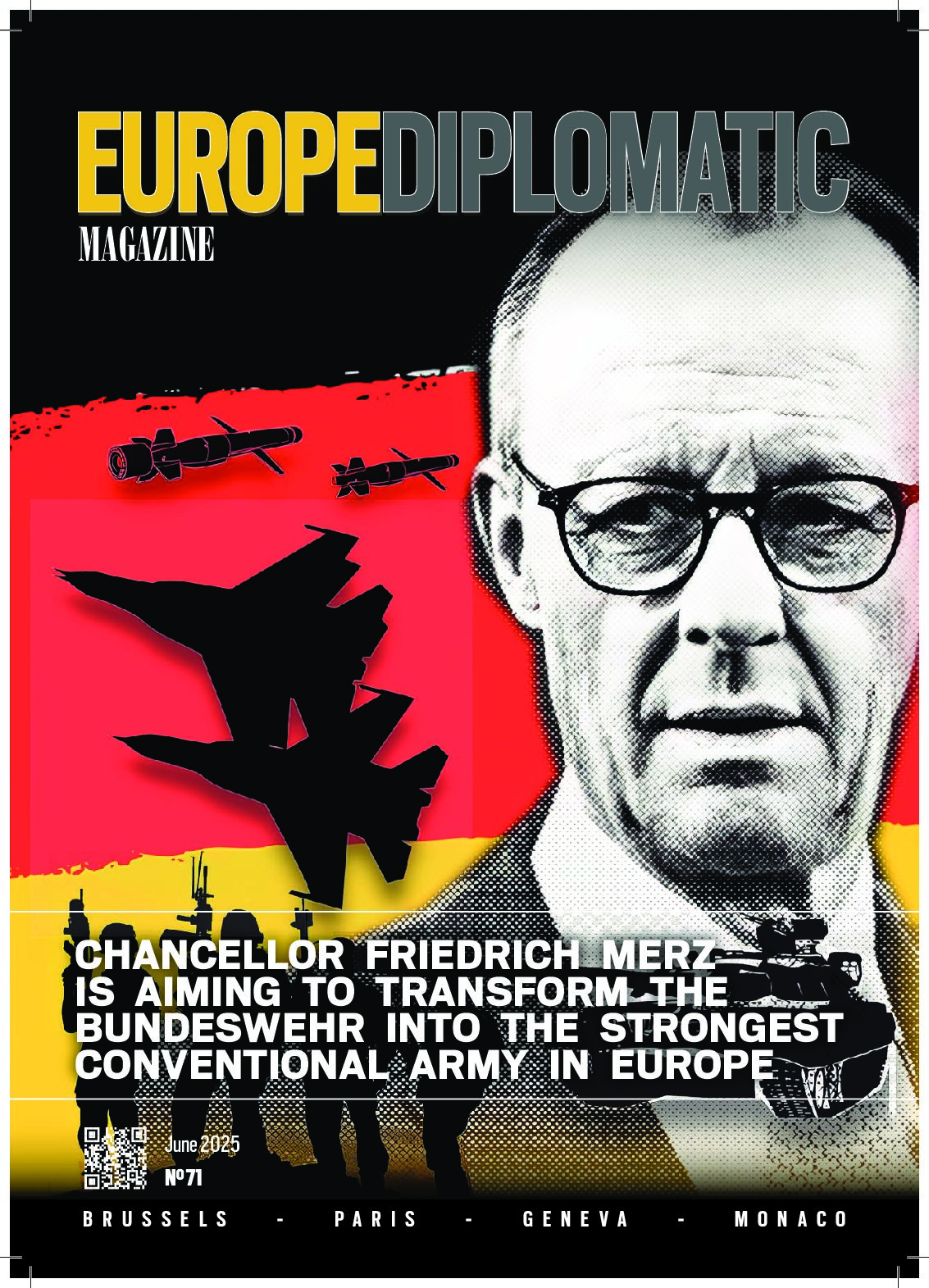“Wherever you have an efficient government you have a dictatorship,” said US President Harry S. Truman during a lecture at Columbia University in 1959. Maybe we in the West simply have inefficient governments and that is why we fear efficient ones elsewhere? Certainly, plenty of political observers in the West fear China’s efficiency (not to mention its ruthless determination) and it’s not hard to see why. This rapidly changing balance of power across the world is a cause for concern at NATO. In its recent document “Ready for the Future: Adapting the Alliance (2018-2019)”, NATO Secretary General Jens Stoltenberg wrote: “I believe the Alliance has to push forward its adaptation to the shifting global balance of power. This includes continuing to map the challenges and opportunities presented by China’s rise and working together to understand and address the implications for our Alliance.” Some might argue that such a sentiment is tantamount to shouting “run for the hills!” America is, we’re assured, a God-fearing nation while China is theoretically atheist, which brings to mind the US naval chaplain Howell Forgy, who in 1941 famously said “Praise the Lord and pass the ammunition.” China, after all, is an increasingly self-confident world power, extending its economic reach around the world whilst also developing formidable weapons with which to defend its advances and ensure its own security. Its stock of nuclear weapons is, however, quite small in comparison with the United States and Russia, and unlike them, it does not maintain its missiles with active warheads, which means they cannot be brought into play at a moment’s notice.

All this helps explain, perhaps, the somewhat nervous response by Germany’s NATO partners to the organisation of joint exercises involving China’s People’s Liberation Army (PLA) and the German army, the Bundeswehr. In order to take part, China deployed armoured personnel carriers and medical vehicles as well as soldiers on German soil for the first time. The joint exercise, named Combined Aid 2019, involved German and Chinese military medical staff working together to improve their joint response to humanitarian crises such as incidents involving multiple casualties and major outbreaks of disease. This most recent exercise, back in July, followed a similar one held in Chongqing in 2016, where armed forces from both countries practised responding to a major earthquake.
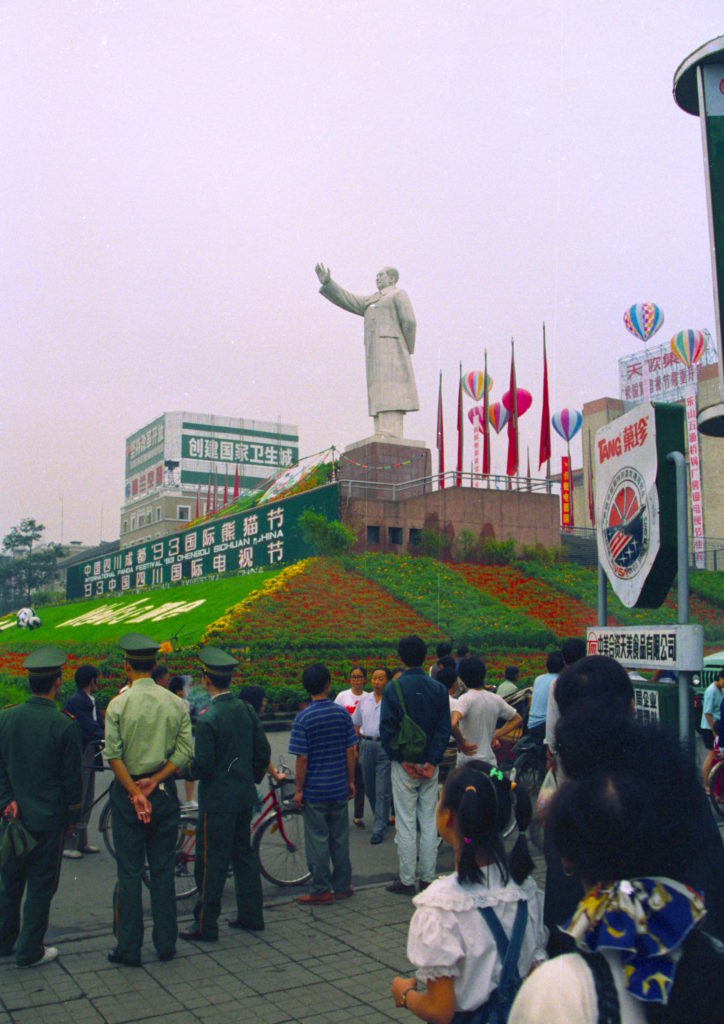
The PLA’s paramedical staff have been stepping up their participation in cooperative training, according to the US-based Military Times. They have been deployed to humanitarian crisis zones in Africa, such as areas suffering Ebola outbreaks, and as part of the UN Peacekeeping forces, they are working alongside German troops in Mali, albeit heavily outnumbered by troops from Chad, Burkina Faso, Bangladesh, Egypt, Senegal, Togo, Niger and Guinea. Togo’s population is less than eight million, a mere fraction the size of China or Germany, but it supplies 937 soldiers to Mali, more than China and Germany combined.
However humanitarian the latest joint exercise in Germany may be seen to be, not everyone is convinced that it’s pure altruism on China’s part. In the US armed forces newspaper Stars and Stripes, Jorge Benitez, a NATO expert with the Atlantic Council, is quoted as saying “The presence of the Chinese military in Germany for this exercise creates very bad optics for Germany, NATO and the US and is a cheap propaganda victory for China”. Even retired PLA colonel Yue Gang told the South China Morning Post that there may be more to China’s military exercises abroad than simply preparing for crises. “The PLA in the future will need to go abroad to protect China’s overseas interests in countries along the Belt and Road Initiative (BRI),” he said. “If there could be some basic mutual trust and understanding with NATO forces, the risk of potential conflict could be greatly mitigated.”
UNEASY FRIENDSHIP
Surprisingly, perhaps, there is a long history of links between China and Germany, going back at least to 1861, when Prussia signed a treaty with the empire of the Qing dynasty ten years before the unification of Germany. The newly united Germany inherited the agreement. Germany took part in helping to crush the Boxer Rebellion and soon afterwards provided military advisors to the Kuomintang government’s nationalist army. Relations were not close in the intervening years, with Germany joining other European imperialist powers in trying to gain influence over swathes of the country. They ended altogether when the Chinese government declared war on Germany in 1917, towards the end of the First World War. The two sides never actually came to blows, however, and afterwards, the Weimar Republic renounced its claims to Chinese territory, opening the way for the signing of the Sino-German peace treaty in 1921.
The Nazis trained Chinese forces who would fight against the invasion by the Japanese. One of the Wehrmacht officers in charge was Chiang Wei-Kuo, adopted son of the Chinese Kuomintang chief, Chiang Kai-shek, but this cosy relationship came to an end when Hitler chose to ally Germany with Japan. Many of the Chinese troops of Chiang’s National Revolutionary Army wore what would seem to have been Nazi uniforms and Hans von Seeckt, who had spearheaded Germany’s victories on the Eastern Front, was sent to advise Chiang on his fight against the Chinese Communist Party. Needless to say, the forces of Mao Zedong’s People’s Liberation Army (PLA) did not wear German uniforms or get advice from the Nazis. There was also a German on Mao’s Long March: Otto Braun, a man from Upper Bavaria who became a Communist, escaped from a German prison with the help of his lover, Olga Benário, and fled to Russia. In 1932 he was sent by the Comintern to Manchuria where he assumed the Chinese name Li De. He became a military advisor to the Communist army but was dismissed from the post by Mao in 1935 after his advice led to a rout of PLA troops and a large number of casualties when facing the larger and better equipped Kuomintang forces. Braun returned to Russia in 1939.

The Long March was intended to get the PLA safely away from their Kuomintang and Japanese enemies in order to pursue a guerrilla war instead of a face-to-face conflict, but it also showed the sheer determination of Mao and his followers to build a new and better future for China. During the march, the first interview with Mao by a Western journalist was conducted by the British writer and teacher Robert Payne. Payne loathed the Kuomintang for their (as he described it to me) “callous disregard for the peasants”, and for getting armed support from brutal warlords who still practised droit du seigneur in the villages and small towns. Payne, a fluent Mandarin-speaker, asked Mao what he would do when American tanks came down on his forces from the surrounding hills. “We shall take them apart with our bare hands,” Mao calmly explained. “That’s when I knew the Communists would win,” Payne told me years later, although he had been disappointed by the bloodshed of the take-over and the greyness of the resulting Chinese post-revolution society. The later so-called Cultural Revolution, another brutal episode in China’s history, didn’t surprise him. “It is the tragedy of all revolutionaries,” Payne told me. “When they have won, you can’t just expect them to put down their guns and go back to farming the land or working behind desks.” Mao knew the revolution must go on, he said.
MUTUAL ADMIRATION?
Regard for Germany is high in China. Shanghai Railway Station boasts a large statue of Johan Sebastian Bach, even though he never visited China. According to a poll conducted by BBC World Service in 2017, 84% of Chinese people view German influence as positive, although the same poll revealed that only 20% of Germans take a similar view of China. Germany did not play as big a rôle in China as Portugal or the Netherlands during the years of empire but trade did develop, initially via Siberia, where the heavy duties charged by Russia made it less profitable, resulting in goods being carried by sea in the 1750s under the auspices of the Royal Prussian Asian Trading Company, based in Emden. More formal trading relations were developed in 1861 following China’s defeat in the Second Opium War. The Treaty of Tianjin laid the foundation for Sino-German relations until the First World War, when the Republic of China repudiated the treaty. The Opium Wars were among the more disgraceful episodes in British imperial history, fought by Britain with French support to force the Qing dynasty to legalise the opium trade from which Britain was profiting and through which China and its people were suffering.
But all this is, of course, ancient history. Why should anyone today concern themselves with such arcane things as the Tianjin Treaty, opium sales or such relatively minor figures as Otto Braun (or Li De, if you prefer)? Even so, China in its new assertive form under Xi Jinping does make various western powers nervous. Take Australia, for example, which has been striving for straightforward trade with its enormous near neighbour. Apparently, US officials see Australia as a test case: whatever China would do there it will do more forcefully elsewhere. And if reports are to be believed, China has been very busy. A Chinese defector who turned up in Australia, Wang Liqiang, presented himself as an intelligence asset having been, he claimed, an assistant to a Hong Kong businessman who, he alleges, was a spy for Beijing, conducting propaganda campaigns against the pro-democracy movement. China is unmoved, claiming he’s just a convicted felon who cheated someone out of $17,000 (€15,429). His alleged former boss in Hong Kong denies knowing him, but intelligence agencies find some parts of Wang’s deposition convincing. Even the more outlandish claims about Hong Kong book-sellers being kidnapped, spies watching university students and the theft of military technology from the United States are being looked into seriously.
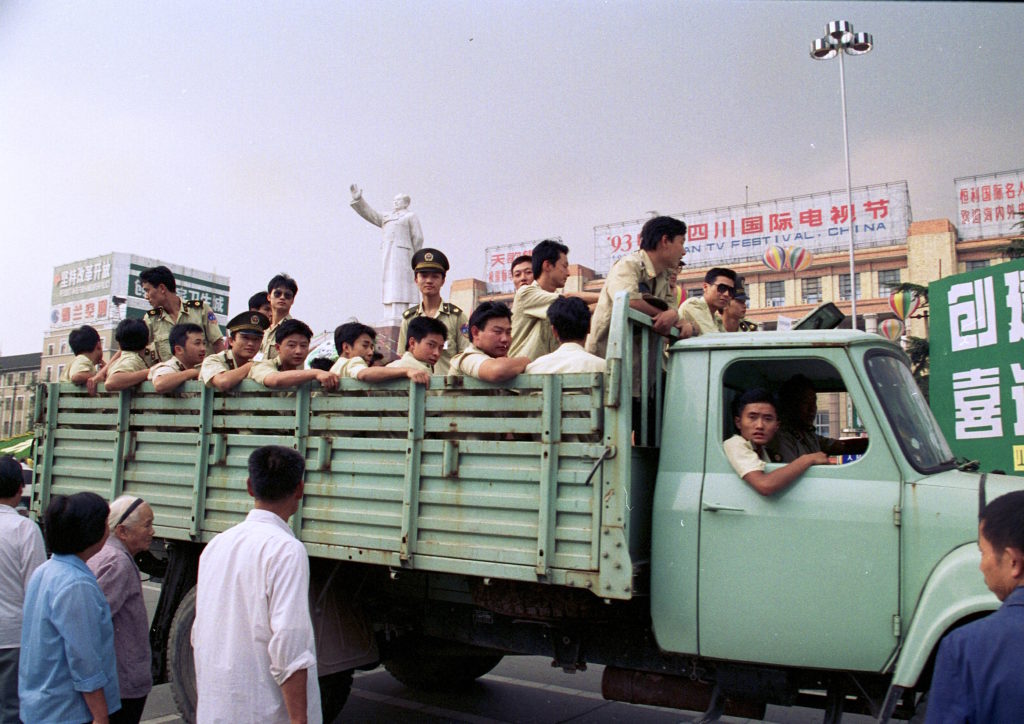
SCARE STORIES
It must be admitted, though, that accepting some of his allegations as truth suits the more hawkish elements in Australia’s Liberal Party, and it’s raised fears about another Liberal Party MP, Gladys Liu, over her possible links to groups associated with the Chinese Communist Party. More worryingly still, as reported by the Sydney Morning Herald and The Age, Australian authorities are investigating accusations made by businessman Nick Zhao, who told them that he’s been the target of a plot to install him in Parliament as an agent of China. Zhao was a luxury car dealer and a member of the Liberal Party who paid $677,000 (€614,000) to finance his election campaign. Just a few months later he was found dead in a hotel room. The state coroner is investigating. The head of Australia’s domestic spy agency, Mike Burgess, has said he’s taking it very seriously. Meanwhile, attitudes towards China among ordinary Australians are said to be hardening with many allegedly writing to Canberra expressing concern. Or so says Andrew William Hastie, Chair of Australia’s Parliamentary Joint Committee on Intelligence and Security and known to be a hawk on China. There have also been worrying reports of people who appeared to be Chinese agents (or at least Chinese) following Australian student activists and also at least one former official, John Garnaut, a journalist who produced a classified report on Chinese political interference for the former Prime Minister, Malcolm Turnbull, in 2017. Garnaut claimed he had been “stalked” by what seemed to be Chinese agents (how does one identify an “agent” as opposed to a “tourist”? Do they look especially suspicious?), even when he was with his family. However, the two countries have co-existed peacefully to their mutual advantage for many years with Australia being China’s biggest, cheapest and most reliable source of iron ore, which should give Canberra at least some leverage over Beijing.
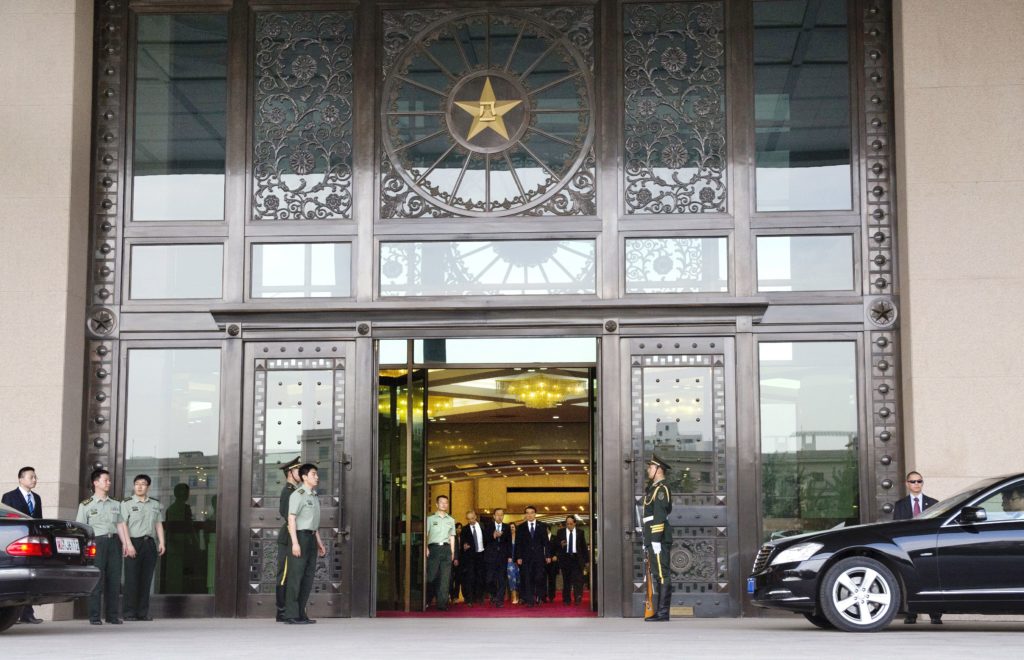
The concerns felt in the West are routinely dismissed by Chinese government officials as over-reaction and, of course, lies. Beijing has dismissed the Zhao accusations as signs of Australian “hysteria”. “Stories like ‘Chinese espionage’ or ‘China’s infiltration in Australia’, with however bizarre plots and eye-catching details, are nothing but lies,” said China’s Foreign Ministry spokesman, Geng Shuang. But as Mandy Rice Davies, one of the young women at the centre of Britain’s Profumo spy scandal in the early 1960s told the Old Bailey in response to a claim that Lord Aster had denied having an affair with her, “Well he would, wouldn’t he?” And to quote once again former US President Harry S. Truman, “Always be sincere, even if you don’t mean it”.
SIGNS OF THE TIMES
According to the Federal Institute for Population Research, in 2016 there were some 212,000 Chinese citizens resident in Germany. That’s not a lot out of 83.5-million: just 0.0025%. In terms of China’s domestic population (almost 1.5 billion), it’s just 0.00015%, an insignificant proportion. So why should anyone worry? But worry they do. Certainly, Joshua Wong worries and his fears are shared by Amnesty International. Wong is one of the leaders of Hong Kong’s pro-democracy campaign and made his comments during a visit to Berlin and a meeting with German officials. After Chinese troops appeared on the streets of the protest-hit “special administrative region”, Wong urged Germany to end its military training assistance to China. He told Germany’s Bild newspaper: “It makes me furious that the German Bundeswehr is apparently helping to train Chinese soldiers. Given the riots in Hong Kong, the defence ministry should have ended this programme long ago.” It should be pointed out, however, that the soldiers took no part in riot control; they emerged from their barracks in Kowloon in plain clothes to help clean up the debris left in the streets by the protests. However, many in Hong Kong saw it as a thinly veiled warning that they could get involved if the unrest worsened. Wong also told Bild that German-made water canon are being used and called for their export to be stopped. However, Bild reported that the German military plans to give logistics and officer training next year to eleven PLA soldiers. Admittedly, eleven doesn’t sound like much of an invasion force. China rebuked Berlin for Wong’s visit.

Industry in both Germany and China doesn’t share the misgivings of the political classes over closer ties. The German Federal Ministry for Economic Affairs and Energy (BMWi) is running a project named Sino-German Cooperation on Industrie 4.0, in collaboration with the Ministry of Industry and Information Technology of the People’s Republic of China (MIIT). Its aim is to encourage “intensive economic relations and the ongoing modernisation of industry in both countries”. This may have a familiar ring for students of 20th century Sino-German history. Back in the 1930s, Hans von Seeckt oversaw the modernisation of China’s ancient and outmoded Hanyang Arsenal to produce the Maxim guns needed by the Kuomintang to fight both the Japanese and Mao’s Communists. Under his guidance, they also produced rifles based on an early Mauser, while new factories were created to produce MG-34 machine guns and parts for the German-made armoured cars China had imported. They also produced the famous German-design army helmets as well as copies of German artillery and even the so-called “Broomhandle” Mauser machine pistols. The last one of those I saw had been produced in Darra Adam Khel in Pakistan’s Frontier Region, Kohat, where a locally-made copy of a Kalashnikov is cheaper than a smartphone, albeit more likely to blow up when in use. The Mauser was being carried by a bodyguard to a Peshawar Trade Union leader I was trying to interview. A scary weapon but effective, if inclined by recoil to punch a vertical line of 9mm holes when fired in automatic mode. In China’s case, the design was modified to take .45 ACP cartridges; the recoil must have been terrifying and the holes somewhat larger.
ANOTHER CALIBRE OF COOPERATION
Today’s less war-like relations on a business level are still causing concern in Germany, despite the upbeat tone of the BMWi’s pronouncements. According to the German Chamber of Commerce in China, as reported by Bloomberg, only a quarter of the five-hundred plus German companies operating in China expect to meet or exceed their targets this year. That’s partly down to tensions between China and the United States, which are affecting more than 80% of them. Other obstacles include rising wages and barriers to market access. Germany is not giving in to gloom, however; Chancellor Angela Merkel visited Beijing in September in order to foster better trade relations. As China’s state-owned on-line news agency Xinhuanet put it: “Merkel is travelling to Beijing at a time when more of such productive cooperation between the two world’s major economies is much needed against the backdrop of global uncertainties.” Xinhuanet paints a gloomy picture of global conditions for trade in the short-to-medium term: “Across the world, trade protectionism and economic nationalism are rearing their ugly heads, the existing global free trade system is lurching, a no-deal Brexit is looming and the global economy is slowing down.” The conclusion it draws inevitably is that Germany and China should develop closer cooperation: “These tumultuous circumstances offer the two sides good reasons to join forces and work even closer together.” Certainly, sales of German cars in China have flatlined, although they’ve held up better than in some other markets.
Within Germany, some senior people are urging caution, including German Economy Minister Peter Altmaier. In November, Germany set out plans to create a government committee capable of stepping in quickly to protect key companies from foreign takeovers. A strategy document is expected in February 2020 but it looks as if the sorts of companies thought to be in possible need of protection include the engineering giant Thyssenkrupp, Munich-based industrial manufacturer Siemens and Deutsche Bank. It follows some alarm over the takeover in 2016 of German robotics maker Kuka, which some German officials saw as a wake-up call. Even so, cooperation continues at the China-Germany Equipment Manufacturing Industrial Park in Shenyang, which China Daily describes in a very positive way: “Sticking to opening and innovation, the China-Germany Equipment Manufacturing Industrial Park in Shenyang has been growing into a new frontier of economic cooperation between China and Germany.” BMW and its Chinese partner have announced a further €3-billion of investment to upgrade the facilities and to build factories for the production of electric vehicles for the Chinese market and for export. It’s a growing area.
THERE’S A LONG, LONG ROAD A-WINDING
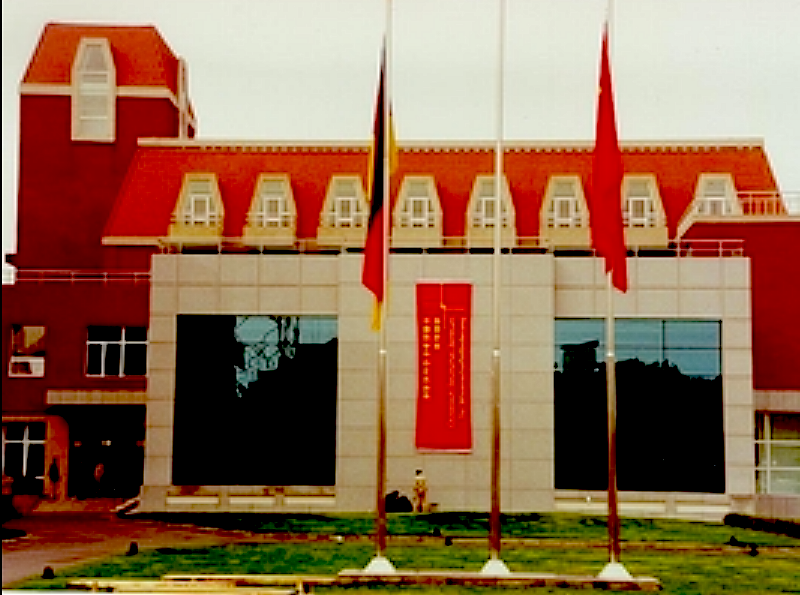
Meanwhile, the Sino-German Centre for Research Promotion in Beijing, which was set up as a joint venture by Deutsche Forschungsgemeinschaft (German Research Foundation or DFG) and the National Natural Science Foundation of China (NSFC) is aimed at promoting scientific cooperation between the two countries. The project’s focus is on natural sciences, life sciences, engineering sciences and management sciences, according to DFG. Developing electric vehicles at the moment sounds like a good idea, given the growing alarm about climate change and the contribution the internal combustion engine makes to greenhouse gases.
How would these Chinese-built electric vehicles reach the European marketplace? Well, DHL Global Forwarding has now launched a rail express service from Xi’an in north central China to Hamburg and Neuss in Germany. The 9,400-kilometre journey takes twelve days, going via Kazakhstan, Russia, Belarus and Lithuania. In a statement, DHL said that the “fastest rail service between China and Germany was created with the support of China Railway, Belintertrans, RTSB Gmbh and UTLC-Eurasian Rail Alliance”. It is widely seen as much quicker than the sea route and much cheaper than shipping by air. DHL say that the Xi’an-to-Germany route will allow customers to track their goods all along the way, thanks to GPS. It all sounds very new but in fact the first Deutsche Bahn (DB) container used the Trans-Siberian Railway in 1973. In 2008, a test service was run between Beijing and Hamburg and later that same year the first container train made the journey. And it’s not all one way. A freight train from Hamburg carried goods to Wujiashan in the province of Hubei in 2011, since when DB has offered regular rail services between Germany and China. In 2018, some 235 weekly container services by rail ran from Hamburg to twenty-seven Chinese cities.
According to the European Commission, the EU is China’s largest trading partner with Germany some way ahead of its partners. To service that trade, the Yu’Xin’Ou railway links Chongqing in southwest China with Duisburg. China views it as part of its famous “Belt and Road Initiative” – the new Silk Road, facilitating increased trade and reinforcing Chinese influence wherever a stopover point is established. The Yu’Xin’Ou route is 11,179 kilometres long and can take up to sixteen days for one complete journey. However, it’s seen as safer than the trip by container ship which takes more than twice as long. It’s cheaper, too, which is why it is being used increasingly. Back in 2012, there was a weekly service employing the enormous train, some 800 metres long. By 2014 it was running three times a week and may soon have to run daily, to cope with the sevenfold increase in the volume of goods being transported.
But it’s not all positive news of unstoppable growth. The former US Treasury Secretary Larry Summers, in a speech to the Harvard China Alumni Public Policy Forum in Beijing, praised China’s rapid advance in just two generations from a poor, backward country to a world leader in artificial intelligence (AI), technology and the Internet. It’s a bigger leap forward than the Industrial Revolution of the 18th and 19th centuries because of its wider impact, he told his audience. He also pointed out that China accounts for one in five of the world’s population. But he also highlighted the downside: businesses trying to trade with China mention unfair treatment when trying to export or invest there, and he said China is less open today than it was six years ago, during which time there have been increasing reports of oppression and human rights abuses. He expressed the fear that China’s Belt and Road Initiative shows economic aggression, using China’s position of power to browbeat small countries into acquiescence while moving away from the rule of law towards the rule of the party and a small caucus of top officials. Summers dismissed claims that China is to blame for an economic downturn in the United States; the main reason for that, he said, is US economic policy. He called on China to abide by internationally recognised standards and rules, such as respect for intellectual property and subsidies and for China to join global institutions without seeking to replace leaders and impose alternative standards that suit it better. Now, a US decision to pass legislation in support of the pro-democracy movement has led to China refusing access to Hong Kong for US troops, aircraft and ships and clamping down on various US-based human rights groups. There may be worse to come. “China will take further steps if necessary to uphold Hong Kong’s stability and prosperity and China’s sovereignty,” said Chinese Foreign Ministry spokesperson Hua Chunying, ominously, at a press conference.
Within the Trump administration China is viewed with deep suspicion and it’s causing divisions in Europe. In May, President Trump took steps to ban the giant Chinese technology firm, Huawei, from selling its technology in the United States. The fear was that Huawei was too close to Beijing and could prove a Trojan horse, allowing espionage out of sight of the US authorities. But it’s not an attitude that has widespread support among US technology chiefs. According to the online magazine EU Reporter, Microsoft President and Chief Legal Officer Brad Smith has described the way the US government is treating Huawei as “un-American”. As far as he knows, he told the magazine, “China’s leading maker of networking equipment and mobile phones should be allowed to buy U.S. technology,” including software from his company. But a major poll conducted by the European Council of Foreign Relations suggests many Europeans are worried, according to Senior Fellow Susi Dennison, as also reported in EU Reporter. The ECFR polled 60,000 people in 14 EU member states, discovering that, according to Ms. Dennison, “More than half of the survey respondents (57%) believe Europe’s economic interests, vis-à-vis China, are not sufficiently protected – with this position held by almost three quarters of voters in France (72%) and Italy (72%), and almost two-thirds in Spain (64%), Germany (62%) and Greece (62%).” This is probably not something Beijing wants to hear.
GETTING USED TO PANDAS
Despite its monolithic government, China is highly adaptable to circumstances it finds in other markets. Abraham Liu, President of Huawei Technologies Belgium, told me that anyone could overcome difficulties that resulted from a mere lack of familiarity. “I think it’s like with Huawei,” he said, “We go to every country, to different cultures, different currency. We face this kind of challenge caused by different cultures. Everywhere our message is to take more competitiveness as the cornerstone of how we work.” He believes western companies can follow Huawei’s example, too. “I think many companies at the beginning when they go to China there are a lot of different kinds of challenges and finally I think many of them have managed to talk it through.” Those challenges, though, many investors in China have found more than just challenging.
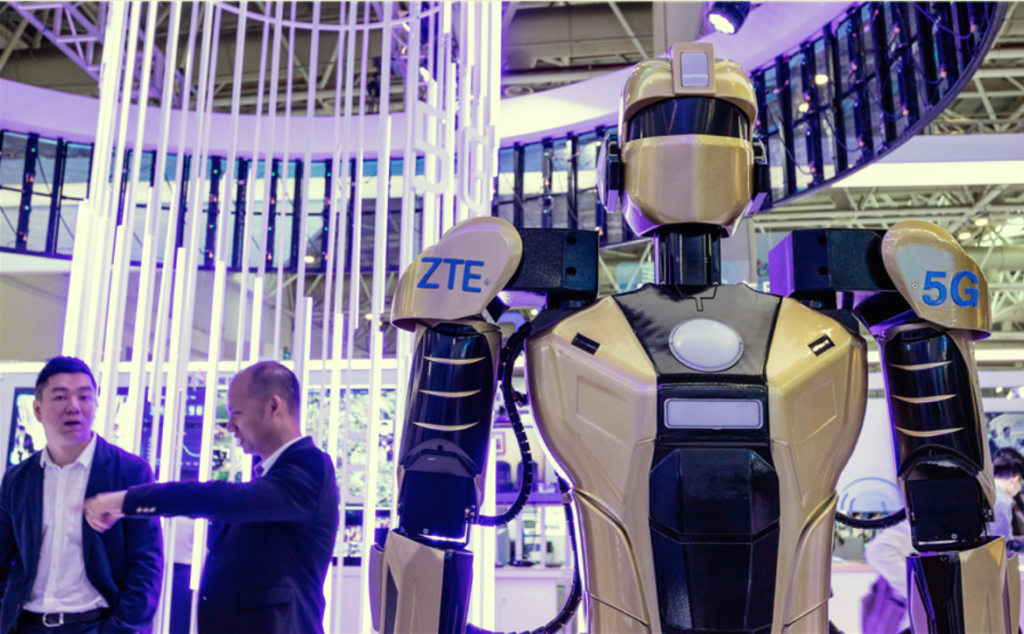
Germany finds itself in an uncomfortable position. It sees the United States as a close friend but disagrees with the Trump administration over telecoms and the new generation 5G networks, with Huawei and another Chinese firm, ZTE, supplying technology. As to fears of spying, Germany’s Economics Minister, Peter Altmaier, reminded a television discussion programme that Berlin had not imposed a boycott on American tech companies after it was revealed that US authorities had tapped Chancellor Merkel’s phone. As the old saying goes, what’s salt for the goose is salt for the gander. It’s a difficult balancing act for Berlin to stay close to Washington while opening up to Chinese companies.
It’s all going to get more important as China’s new Silk Road – the Belt and Road Initiative – progresses. “The initiatives are open to all and countries that are interested in the initiatives can participate in them,” said Ou Xiaoli, Deputy Director-General of the Department of Western Region Development at China’s National Development and Reform Commission (NDRC), “What China has offered is only vision.” The plan will link China with much of the rest of the world. The Xinhua news agency said when the plan was announced by Xi Jinping that “the Silk Road can become a common future language.” A bit of an exaggeration, even given the fact that China is now offering cruises along part of the maritime Silk Road to the Xisha Islands off the coast of Hainan province and to other destinations; China will also need to ensure the security of its new route and the massive investment it involves, which would mean Chinese forces working closely with those of the countries it links, just as retired PLA colonel Yue Gang said. That’s why the joint Sino-German military exercises are seen as important by Beijing and Berlin but feared and opposed by those who still see China as a large, aggressive and rather rapacious rival. Hong Kong’s protesters are angered by it. China, it seems, doesn’t make friends easily, at least with the benefit of mutual trust. It’s significant, perhaps, that the US has the bald eagle as its emblem and Russia has the bear but China’s is the Giant Panda, which, unlike the other, rather fiercer symbolic creatures, is very reluctant to mate, even when offered titbits as inducements. More bamboo shoots, anyone? But don’t forget: China is also represented by a mythical creature, the dragon, representing wealth, power and leadership. To the Chinese, the phrase “a dragon among men” is used to describe someone of exceptional, unmatched talent. And in China’s mythology, dragons can be good or evil.
Jim Gibbons
